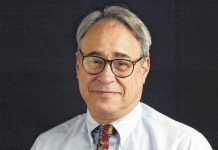September is National Recovery Month, a time to celebrate the gains made by those in recovery and raise awareness of how essential behavioral health is to overall health.
It also is a time for us to show that prevention works, treatment is effective and people can recover from behavioral and substance abuse disorders.
Recovery Month has particular significance in Indiana right now. Addiction is a growing crisis across our state. Since 2000, the number of overdose deaths in Indiana has quadrupled, and heroin use by young Hoosiers has grown to exceed national levels. Injection drug use has been linked to the HIV and Hepatitis-C outbreaks in southeastern Indiana.
Substance abuse contributes to crime, lost productivity and high healthcare expenses in our communities, and exacts incalculable emotional costs from individuals and families. This is why finding effective treatment for those who become addicted is imperative.
Opioid addiction — addiction to prescription painkillers or illicit drugs such as heroin — presents a special challenge to treatment professionals. This kind of drug abuse leads to adverse brain chemistry changes that cause craving and withdrawal that continue after a person stops using an opioid. This can make focusing on recovery difficult.
Research is showing that medication-assisted treatment, the use of medications in combination with counseling and behavioral therapies, can be more successful than traditional treatments for those struggling with opioid addiction. It acknowledges the brain chemistry changes created by addiction, reduces physical cravings, helps people better focus on behavioral treatment and decreases their chances for relapse.
Two classes of medications — anti-craving medicines such as Naltrexone and synthetic opioids such as Methadone and Suboxone — are most helpful. Anti-craving medicines are non-addictive and significantly reduce the euphoric effect of opioids. Synthetic opioids ease and manage withdrawal symptoms in early recovery from opioid addiction.
Unfortunately, access to medication-assisted treatment is currently limited. There is a shortage of addictions treatment providers, limited investment in treatment resources and research, and few addictions-trained physicians. These issues are all a reflection of long-held stigmas around addiction. However, the tide is turning.
Both the expanded Healthy Indiana Plan 2.0 benefit and new, targeted funding for community-based treatment of substance abuse disorders recently approved by the Indiana Legislature paint a more hopeful picture for the future. The price of addiction is incredibly high for Hoosier communities. By investing resources toward the most effective interventions to curb the rising tide of addiction, we ultimately save dollars and, more importantly, lives.
Suzanne Koesel is chief executive officer of Centerstone, a not-for-profit organization with an office in Columbus that provides mental health, substance abuse, education and integrated health services.




